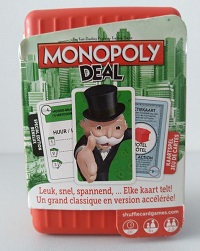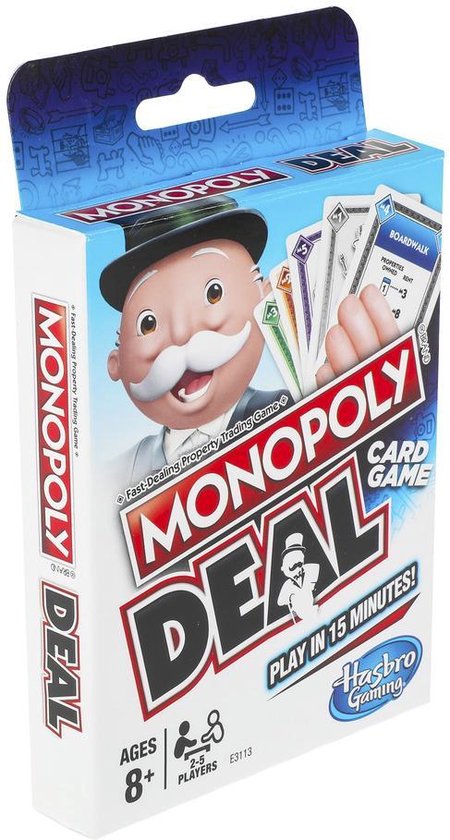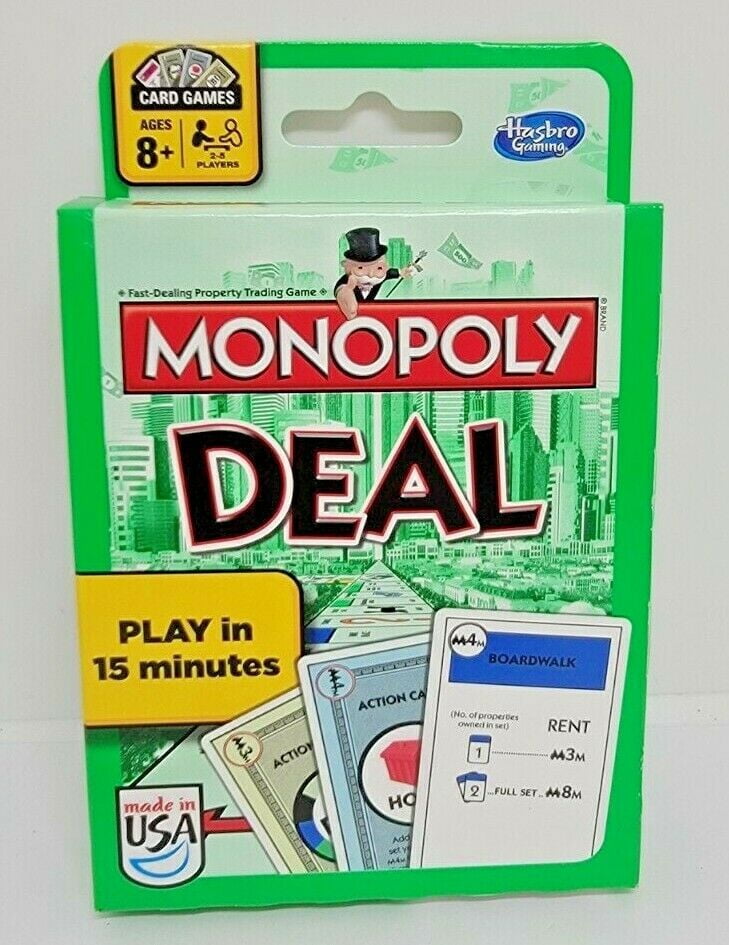
Deals and deal-breakers make for very dynamic matches, where the outcome is never certain until everyone but the winner is dead. Monopoly's never really been about balance, anyway, and the skill of the whole thing generally lies in the mind-game element. No matter: some people really hate Monopoly Deal's imbalance, but I love it.

Deal cards are totally overpowered, although deal-breaker cards do redress this a little. As in standard Monopoly, money's not just how you pick up properties - it's also a handy buffer against having to hand over those properties to someone who's suddenly sticking you for the best part of a grand.Īction cards also include deals, often enforced deals, and sometimes deals with nothing coming back the other way, which may sound a little like theft. These might include old chestnuts like passing Go and picking up a few extra cards for your trouble, but they might enforce sudden rents. The reason you might need to give it to another player is because of action cards. Money's always handy to have in play - rather than in your hand where you can't use it in emergencies - as you never know when you're going to need to give it to another player. Alongside properties, the cards you deal each turn may stand for money or actions. It's more complicated than that, of course. For the correct atmosphere, play it with these guys on in the background. It's kind of a Rummy variant in that you're trying to build sets of cards - in this case sets of extremely familiar properties - and complete three of these before your foes. Monopoly Deal is a couple of years old by this point, but you can still get a pack on Amazon fairly cheaply. (Maybe it wasn't Peter Lorre, incidentally.) It's astonishing the place is still standing - and charging so much for a mocha. Forget military commanders, this was like that scene in the old horror film where Vincent Price and Peter Lorre, both venerable and enormously deadly wizards, finally face each other in a battle of thermonuclear magic.

Nobody knew what was really taking place. The place was filled with families and pushchairs and people on lunch breaks. 10 minutes! We met at a coffee shop across the street from the Eurogamer offices to play. It's a card game that rejigs the rules of Monopoly so that you can play a match in 10 minutes. Even more luckily, my friend introduced me to Monopoly Deal recently. Luckily, I have one friend who is just as brilliant at Monopoly as I am, and for all the same reasons. Even distant acquaintances have heard stories of the wounds I inflict on anyone stupid enough to admit a preference for the utilities.

Friends remember the stunts I pull if you don't hand over the railroads. Family members have grown canny and cold-hearted. Because of my behaviour, I have not been invited to a game of Monopoly in many, many years. There's a problem with this, of course, the same problem that an evil military commander might encounter after razing his own territory to foil an advancing foe. Eventually, you will cave, and I will get the oranges on highly favourable terms. This will wrongfoot you and you will become confused. If we don't have a personal history, I will just be a massive jerk to you - and very, very occasionally I will be inexplicably lovely. If we have a personal history together, I will dredge that history, sifting any past misdeeds and suggesting that I might share them with the rest of the group if I don't get the oranges on highly favourable terms. The real game is about what nicer people than me might term the negotiation, and in Monopoly I have given myself the leeway to negotiate in any way I please. This is because of the way I play, employing a strategy in which the real game takes place off the board. If you and I were to play a quick game - and it would be a quick game - I would not just win, I would make you cry.


 0 kommentar(er)
0 kommentar(er)
